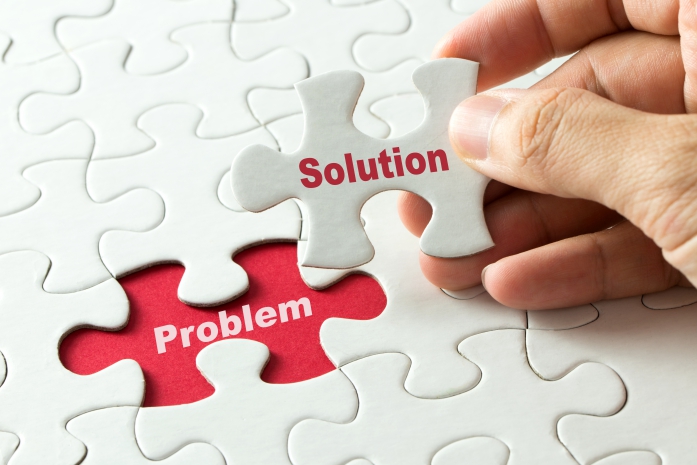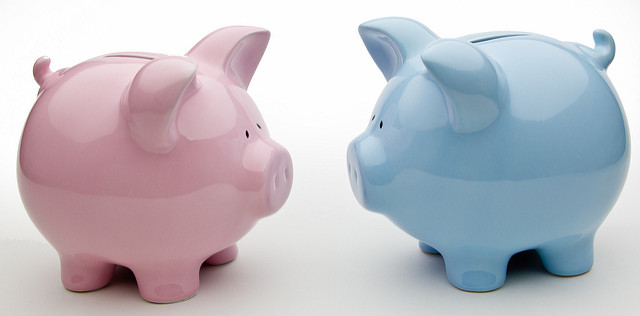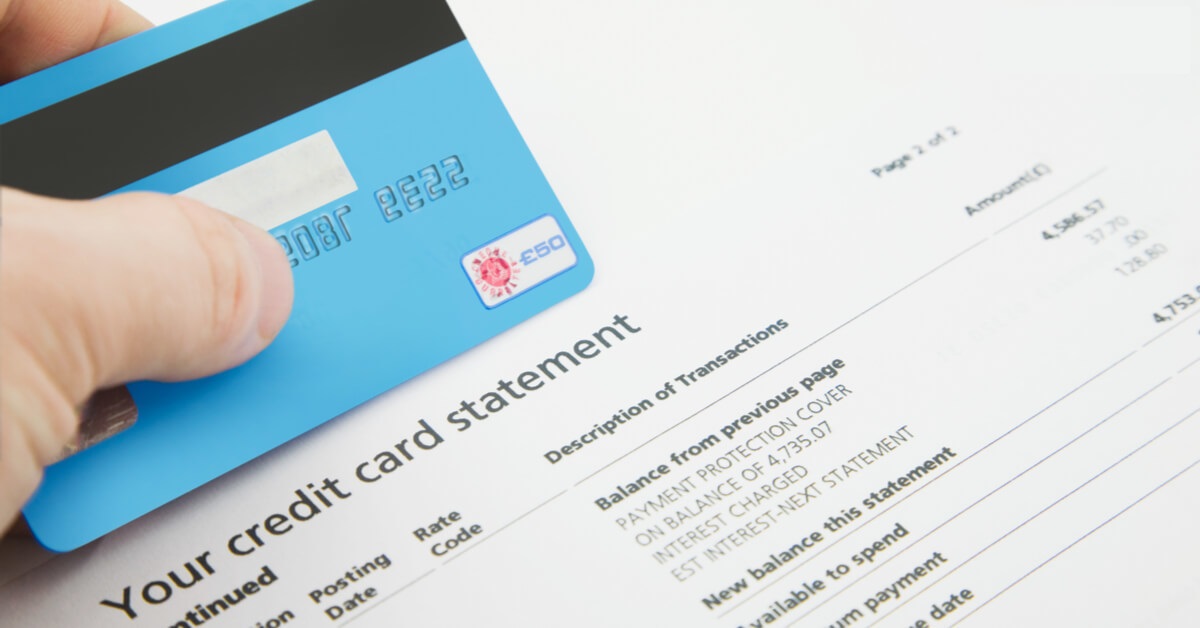We all love credit cards. It makes our lives easy in many ways. Other than enjoying varieties of offers from different merchants and earning air-miles, most importantly you can build a good credit score which in turn gives you a lot of extra benefits in long run. I’ve written an exclusive article on Credit Card Benefits: Why You Must Have One. Currently if you are not using any credit card, I highly recommend to go through the article.
If you are living in a city, you hardly need cash for making payments. You also probably don’t want to miss the cashback offers and rewards points from different credit card companies. Naturally, credit card becomes your first preference for any payments.
Good or Bad?

Apart from those offers, the biggest reason why credit card is very popular is because it gives you purchasing power in the absence of enough balance in your savings a/c. This benefit sometimes (if not always) causes loosing control over your total expenditure and you ended up paying a huge bill at the month end or carry forward the unpaid amount to the next month’s bill.
The credit card companies are well aware of this fact that when you use credit card, you tend to spend more. That’s why they offer several benefits to attract more customers. They also tie-up with different merchants. Those merchants also offer several other benefits. As a result, more customers on-board and more purchases happen.
Most people overspend

Overspending is spending more money than one can afford. Credit card users spend more without realizing, and most of the times they end-up overspending.
When I stared my career along with many of my friends, we all started using credit cards very soon or later. After 8 yrs., I see many of them have stopped using it and switched to debit card mode. The problem is same for all. Overspending!
If you also had used credit card in past but have stopped using it, most likely that you were spending a lot and wanted to control your expenditure.
Why do we overspend?

Everybody loves to spend. We spend money, and in return we get something we like or need. It brings happiness. There is no limit of our needs. So, we keep spending till the time we can afford.
We all have some sort of income and that defines our affordability. When we don’t track our individual expenditure then our total expenditure becomes bigger without realizing. If we don’t measure our total expenditure vs. how much extra we can afford, then it gives a wrong signal about our affordability. Because we love to spend, this mind-set makes us believe that we can afford more. Our intent to spend more makes us continue spending and go beyond our affordability.
Let’s take an example to understand it better.
Life of a common man like you and me
Consider you are a regular office-going salaried employee and your monthly take home salary is Rs. 1,00,000 (for easy calculation). Generally you’ll have some fixed monthly liabilities like house rent, insurance premium, electricity and utility bills. Also, you must have a solid plan for savings. As I’m not discussing the best practices on how much you should save based on your monthly income, for simplicity – let’s consider that all these monthly fixed liabilities and contribution towards savings cost you Rs. 50,000.
So, you have remaining Rs. 50,000 on your hand that you spend based on your need. Suppose you spend Rs. 2,000 per week for your commutation and lunch.
First week of the month

When your monthly Rs. 1 Lac salary gets credited to your a/c, you go to shopping and spend Rs. 10,000, go to restaurants and pay bills of Rs. 5,000, go to movies and spend Rs. 2,000. Also, you spend Rs. 2,000 for your weekly commutation and lunch. You do all these because you just got your salary in your a/c, so these few thousands look very small amounts compared to your current a/c balance.
Second week of the month
You know you have roughly spent around Rs. 15 – 20 K but that looks fine compared to your monthly budget. So, you throw a party with friends and spend Rs. 7,000, go on a road trip and spend another Rs. 5,000, buy some gifts for your loved ones and spend Rs. 7,000 along with your weekly Rs. 2,000 expenditure towards commutation and lunch. You know that you are increasing your credit card bill every week by few thousands. To be little cautious, you check your account balance and found that it’s Rs. 50,000. So, not to worry much!
Third week of the month

You hardly track how much you have spent in total till date. Without that it’s difficult to guesstimate the actual expenditure, and it’s even more difficult if you use multiple credit cards. If you would have tracked your total expenditure, you would have found that you have already spent Rs. 40,000 which is 80% of your monthly budget (Rs. 50,000) just within the first two weeks of the month.
To be within the budget, you have only Rs. 10,000 for next two weeks, out of which you need Rs. 4,000 for your commutation and lunch. As a result, you can only spend the remaining Rs. 6,000 over the next two weeks i.e. Rs. 3,000 per week on average. If you spend more than that, you will not be able to repay the full bill amount at the month end and that extra amount will be added to your next month’s bill along with interest charges.
Even if you are seriously concerned then you might calculate the total expenditure so far. But then you also check your savings a/c balance which is Rs. 50,000 (if not more). Having an a/c balance of Rs. 50,000 overrules the burden of Rs. 40,000 and everything looks fine. This balance also fuels you to continue your spending further and feel OK to carry forward the extra amount, if any, towards next month’s bill.
So, before the month end, you end-up spending your entire budget or overspending than your capacity.
Solution : That I follow

I use credit card for almost all purchases. I don’t want to stop using it because I’m finding new ways to save money while being in total control of my expenditure. You can refer my article to know my Credit Card Tricks: How I Save Thousands of Rupees using credit cards.
People spend because they can. Who can afford more, spend more. But we should not be spending more than what we can afford.
Definitely, there could be situations like emergencies, unexpected circumstances where you have to go beyond your budgets, there is no other choice. And a credit card can be very helpful in such situations. You can refer my article to know about such benefits of having a credit card.
But considering that our income is limited and we have a limited budget, we should keep an eye on our total expenditure and avoid overspending.
Here I will share the 3 rules that I follow to control my expenditure on credit cards. I’m sure if you follow these rules, it will help you stop overspending.
Rule 1 : Decide your budget before start spending
“Do not save what is left after spending; instead spend what is left after saving.”
Warren Buffett
Each one of us might be having our own calculation for how much we should save. Whatever is the amount, decide it at the beginning before spending. Most of us have a fixed monthly income, hence this could be a one time exercise.
Obviously you should consider the expenses which don’t incur every month rather yearly or quarterly e.g. insurance premium, travel plan. You must have a proper plan to build the savings for that. It could be from your monthly contributions or yearly/quarterly bonus.
Again, I’m not discussing the best practices on how much you should save, so after considering all of these expenses along with monthly fixed liabilities and your savings, the remaining is your monthly budget to spend.
If your income is fixed, then ideally your monthly budget will also be fixed. In some months you might incur higher expenditure which needs to be compensated in the following months and your budget needs to be adjusted accordingly. However, whatever is the budget calculate it at the beginning of the month.
I maintain a break down of all of my expenses, liabilities and contributions towards different goals. Based on that, I have calculated my monthly expenditure. Sometimes I need to adjust that a little.
Rule 2 : Use a separate bank account for your monthly expenditure

Once you have decided your budget for the month, transfer that amount to a separate bank account and use that a/c throughout the month for all of your expenditure. Don’t mix your monthly budget amount with any thing else.
Separate a/c for savings
For simplicity, let’s consider that you get your salary in a bank a/c say A. You must be having a separate bank a/c say B for your savings and future goals. At the beginning of every month, you transfer all those contributions related to savings and future goals to the a/c B. In the example above, you transfer Rs. 50,000 at the beginning of every month to the a/c B.
Separate a/c for monthly expenditure
I recommend you to have one more a/c say C which you use for all of your monthly expenditure. At the beginning of every month, you transfer your budget amount for the month to this a/c. In the example above, you transfer the remaining Rs. 50,000 to this a/c C.
Start your month keeping the a/c C in your mind for all of your expenses (including cash expenses), and forget about your other two accounts A and B. This defines your affordability and your mind is setup accordingly.
Rule 3 : For every purchase, transfer the equivalent amount for upcoming payment
Tracking is important for all of your expenditure. But tracking alone is not sufficient to avoid overspending. It reduces your intent to spend more to a certain extent. But the moment you get a feel of having a good savings account balance, it gives you a wrong signal about your affordability and you again tend to spend more.
To avoid that wrong signal, simply follow this last (but not least) rule. For every expense on any of your credit cards, transfer the equivalent amount from your budget a/c C to your salary a/c for paying upcoming bill. Always check your available budget in a/c C before you spend next.
This way, you are tracking your total expenditure (which is your allotted budget – available balance) of the current month. Also, you get a feel of how fast/slow you are finishing your budget which in turn helps you control your future expenditure. Also, you have secured the savings required for paying the bill at the month end.
When you apply these rules

If we consider the same example above, at the beginning of the first month you know that your budget is Rs. 50,000, so on average you can spend Rs. 12,500 per week. Even if you would have made similar expenditure (Rs. 19,000) in the first week, at the end of the week you find yourself left with Rs. 31,000.
This massive reduction (which is 38% of your monthly budget) in your available balance gives you an alert to put some control on your future spends. Your mind also gets updated about your current affordability.
At the beginning of the second week when you realize that you have only Rs. 31,000 for next 3 weeks, then you will definitely think twice before throwing a party and going on a road trip. Even if you can’t resist yourself much, instead of spending another Rs. 21,000 at least you will try to keep your expenditure within Rs. 10,000 to Rs. 15000. So that you can assure to have a balance of Rs. 16,000 to Rs. 21,000 for your expenditures in the remaining two weeks.
So, regularly tracking your total expenditure vs. your affordability is important. Along with that, when you realize how you are finishing your available budget then it helps you avoid overspending.
I hope these tips will help you control expenditure on your cards and avoid overspending. If you have any other thoughts, feel free to share in the comments below.



![Credit Card Tricks: How I Make Lacs of Rupees [2021]](https://urbancodex.com/wp-content/uploads/credit-card-tricks-2021-300x200.jpg)
